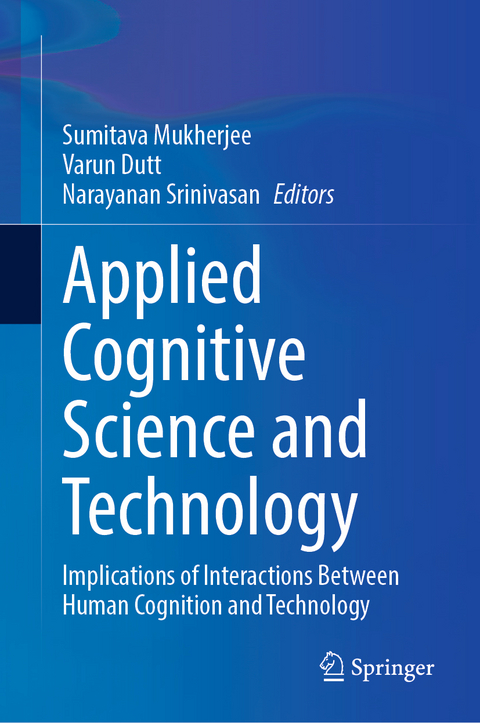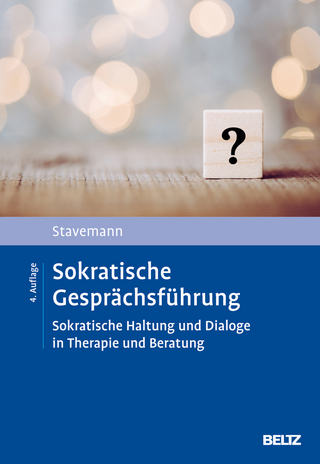
Applied Cognitive Science and Technology
Springer Verlag, Singapore
978-981-99-3965-7 (ISBN)
Sumitava Mukherjee is an assistant professor at the Department of Humanities and Social Sciences, Indian Institute of Technology Delhi. Dr. Mukherjee has his academic backgrounds in computer engineering and cognitive science. At IIT Delhi, he was a founding member of the Cognitive Science Programme and served as the Co-ordinator from 2021–2023. He also initiated Decision Lab as a research-cum-knowledge partner for decision research in India, the Scarcity lab research group to work on thinking and decision making under scarcity and poverty and started a public dialogue by setting up a website Humans and Technology. He works on foundational and applied aspects of judgment and decision making that generate socially relevant behavioral insights. He also initiated a focused research agenda to generate insights and have dialogues on a human view of technology based on behavioral science. He was awarded the Emerging Psychologist award in 2014 by NAOP India, the Outstanding Researcher award by Indian Institute of Technology Gandhinagar in 2014 and the Young Psychologist award in 2020 by NAOP India for his contributions academically and professionally. Varun Dutt is an associate professor in the School of Computing and Electrical Engineering at Indian Institute of Technology Mandi, India. Dr. Dutt has applied his knowledge and skills in the fields of psychology, public policy and computer science to explore how humans make decisions on social, managerial and environmental issues. Dr. Dutt serves as a senior member of IEEE; as the Chair of Indian Knowledge System and Mental Health Applications (IKSMHA) Centre, IIT Mandi; and, as the Principal Investigator at the Applied Cognitive Science (ACS) Lab, IIT Mandi. He is currently serving as an associate editor of Frontiers in Psychology (Cognitive Science) journal, a review editor of Frontiers in Decision Neuroscience journal and a member of the editorial board of the International Journal on Cyber Situational Awareness. Narayanan Srinivasan is a professor and Head at the Department of Cognitive Science, Indian Institute of Technology, Kanpur, India. Prior to this, he was a professor at the Centre of Behavioural and Cognitive Sciences, University of Allahabad, India. He studies mental processes, especially attention, emotions, consciousness and decision making using multiple methodologies. Dr Srinivasan has edited eleven books and seven special issues. He has published more than 180 papers in journals, books and conference proceedings. Dr. Srinivasan is a fellow of Association for Psychological Science, National Academy of Psychology (India), and Psychonomic Society. He is an associate editor of Cognitive Processing, Neuroscience of Consciousness, Frontiers in Consciousness Research, and Mindfulness.
I. ARTIFICIAL INTELLIGENCE AND AGENTS
1. Towards Behavioral AI: Cognitive factors underlying the public psychology of artificial intelligenceSUMITAVA MUKHERJEE, DEEPTIMAYEE SENAPATI, ISHA MAHAJAN
2. Defining the Relationship Between Level of Autonomy in a Computer and Cognitive Workload of its UserTHOM HAWKINS, DANIEL N. CASSENTI
3. Cognitive effects of anthropomorphization of artificial agents in human-agent interactionsBAS VEGT, ROY de KLEIJN
II. DECISION SUPPORT AND ASSISTANCE SYSTEMS
4. Psychological Factors Driving Adoption of Decision Support ToolsTHOM HAWKINS
5. Model-based operator assistance: How to match engineering models with humans' cognitive representations of their actions?ROMY MüLLER, WOFGANG SCHOPPEK, LEON URBAS
III. BEHAVIORAL CYBER SECURITY
6. Behavioral cyber-security: Influence of availability of information about opponent's actions on decision-making in markov-security gamesZAHID MAQBOOL, C.V.S PAMMI, VARUN DUTT
7. Exploring Cybercriminal Activities, Behaviours and ProfilesMARIA BADA , JASON R.C NURSE
IV. NEURAL NETWORKS AND MACHINE LEARNING
8. Computer Vision Technology: Do Deep Neural Networks Model Nonlinear Compositionality in the Brain's Representation of Human-Object Interactions? ADITI JHA, SUMEET AGARWAL
9. Evaluation of different deep reinforcement learning algorithms in complex search-and-retrieve virtual simulation against human performanceSHASHANK UTTRANI, ASHOK K RAO, BHAVIK KANEKAR, ISHITA VOHRA, VARUN DUTT
10. Cognate Identification to Augment Lexical resources for NLPSHANTANU KUMAR, ASHWINI VAIDYA, SUMEET AGARWAL
V. HUMAN FACTORS
11. Psychophysiological Monitoring to Improve Human-Computer Collaborative TasksDANIEL N. CASSENTI , CHOU P. HUNG
12. Human-Technology interfaces: Did 'I' do it? Agency, Control and why it mattersDEVPRIYA KUMAR
VI. ENGINEERING DESIGN
13. Effects of Analogies and Analogical Distance on Ideation in Conceptual Phase of Engineering Design SRINIVASAN VENKATARAMAN, BINYANG SONG, JIANXI LUO, SUBBURAJ KARUPPPASAMY, MOHAN RAJESH ELARA, LUCIENNE BLESSING, KRISTIN WOOD
VII. CRITICAL CONSIDERATIONS
14. Humiliation and Technology: Dilemmas and Challenges for State, Civil Society and Industry
YASHPAL JOGDAND
15. Technology: Does It Help or Harm Intelligence-or Both?ROBERT J. STENBERG, SAREH KARAMI
| Erscheinungsdatum | 01.09.2023 |
|---|---|
| Zusatzinfo | 13 Illustrations, color; 22 Illustrations, black and white; XVIII, 259 p. 35 illus., 13 illus. in color. |
| Verlagsort | Singapore |
| Sprache | englisch |
| Maße | 155 x 235 mm |
| Themenwelt | Geisteswissenschaften ► Psychologie ► Allgemeine Psychologie |
| Geisteswissenschaften ► Psychologie ► Psychoanalyse / Tiefenpsychologie | |
| Geisteswissenschaften ► Psychologie ► Verhaltenstherapie | |
| Schlagworte | Behavioral Cybersecurity • Human centric Artificial Intelligence • Human Technology Interaction • Natural Language Processing • Psychology of Virtual reality • Social Media Analytics • Technology Acceptance |
| ISBN-10 | 981-99-3965-8 / 9819939658 |
| ISBN-13 | 978-981-99-3965-7 / 9789819939657 |
| Zustand | Neuware |
| Haben Sie eine Frage zum Produkt? |
aus dem Bereich


